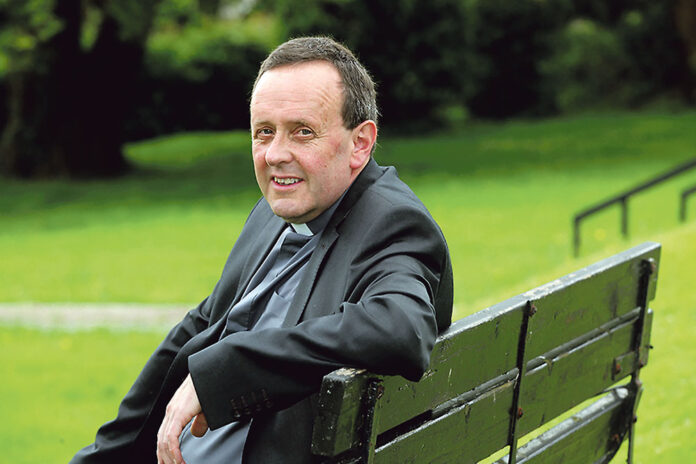THE new Bishop-Elect of Ferns, Ger Nash, supports a greater role for women in the Catholic Church including their ordination as priests.
This isn’t allowed under current church rules and the lack of women priests has been a bone of contention for many people in the Killaloe Diocese for decades.
In an interview with The Clare Champion, the former Tulla priest who is “privileged” and “humbled” with his elevation, has also called for an examination of the real meaning of ministry and the role played by non clerics spreading the message of Christ during the daily lives.
Asked if he believes women should be allowed to become priests, Bishop Nash said the full ministry in the church should be open to all baptised people.
“When is that going to happen I don’t know. I am in favour of this. Most of the Irish Bishops are on record as striving to make ministry as inclusive as it should be. I think the idea of ministry and governance of the church being entirely male is completely wrong. I will be advocating for change. We must move forward.
“We need to look at what ministry is about. The way we are doing ministry is confining it to priests and not recognising so many people do ministry in their daily lives. Ministry is about bringing the message of Christ to people. So many people do this in their daily lives and we don’t formally recognise that.”
For the last three years, Bishop Nash played a key role in training 25 people including 20 women in the Killaloe Diocese to become ministers next year. Of this total, 12 of them are catechists and 13 will be involved in pastoral care.
While the 20 women and five men will not be celebrating Mass, they will be official ministers of the gospel alongside the priests working to build a Christian community.
The 12 catechists will be involved in First Holy Communion and First Communion sacramental programmes assisting the work being completed by teachers and parents in this area.
Bishop Nash believes they will bring an extra level of skill and ability in pastoral areas to work with teachers and parents, assisting priests in a pastoral area that would have had a much larger number five years ago.
The former Killaloe Diocesan secretary stressed they will not be replacing work done by priests but acting as co-workers working together.
Some catechists will be working on faith development programmes with adults, inviting people to explore what it means to be part of the church.
“There is a great hunger among people for going back to basics – what do we believe, why do we believe it and why was the church formed, how did we get to where we are and what is the whole story. How can I develop my own faith so I can be a contributor to the Christian community.
Pastoral care workers will work with priests helping families around the time of bereavement, preparing a family funeral, visiting hospitals and nursing homes, saying prayers in long stay residential facilities.
“They will be reaching out to families who are not formally linked to church but want to come back to church during the key moments of life.
“It is important to provide a welcoming presence for people who may feel themselves at a bit of a loss at what needs to happen around the time of a sacrament or a funeral.
“The most effective change happens when you take several steps that changes peoples’ perception of church life, ministry and how we organise ourselves,” Bishop Nash explained.
The Diocese of Limerick are now following the Killaloe Diocese in its work on developing this new ministry, the first of its kind in the country to include catechists and pastoral care workers.
Bishop Nash paid tribute to former Bishop of Killaloe Kieran O’Reilly and Bishop Fintan Monahan for developing and implementing a new pastoral plan that encourages this change and this helps other diocese to get courage move on and try other things.
“Change in the church is slow. Pope Francis has made an official ministry in the church called catechist. There was always a role of catechist but the Pope has decided catechists are now ministers of the church. That is a step forward.”
For many years bishops have been chosen from priests within the diocese. However, Pope Francis has opted to promote priests from outside the diocese like Bishop of Killaloe Fintan Monahan. Bishop Nash believes this policy has its merits and drawbacks.
On the plus side, he said a new bishop from outside the diocese is starting with a clean slate and has no baggage, but doesn’t have the wealth of knowledge that comes from an appointment within the diocese.
The first time Bishop Nash heard was about his promotion was on May 29 when the Papal Nuncio, His Excellency, Archbishop Jude Thaddeus Okolo, rang him requesting a meeting in Dublin.
On Monday, May 31, he met the Papal Nuncio who gave him some time to digest the news and agreed on June 4 to take up his new post before it was officially announced on Friday.
The Papal Nuncio told Bishop Nash the work he has spearheaded in pastoral planning is something Pope Francis would like replicated in other dioceses.
by Dan Danaher


